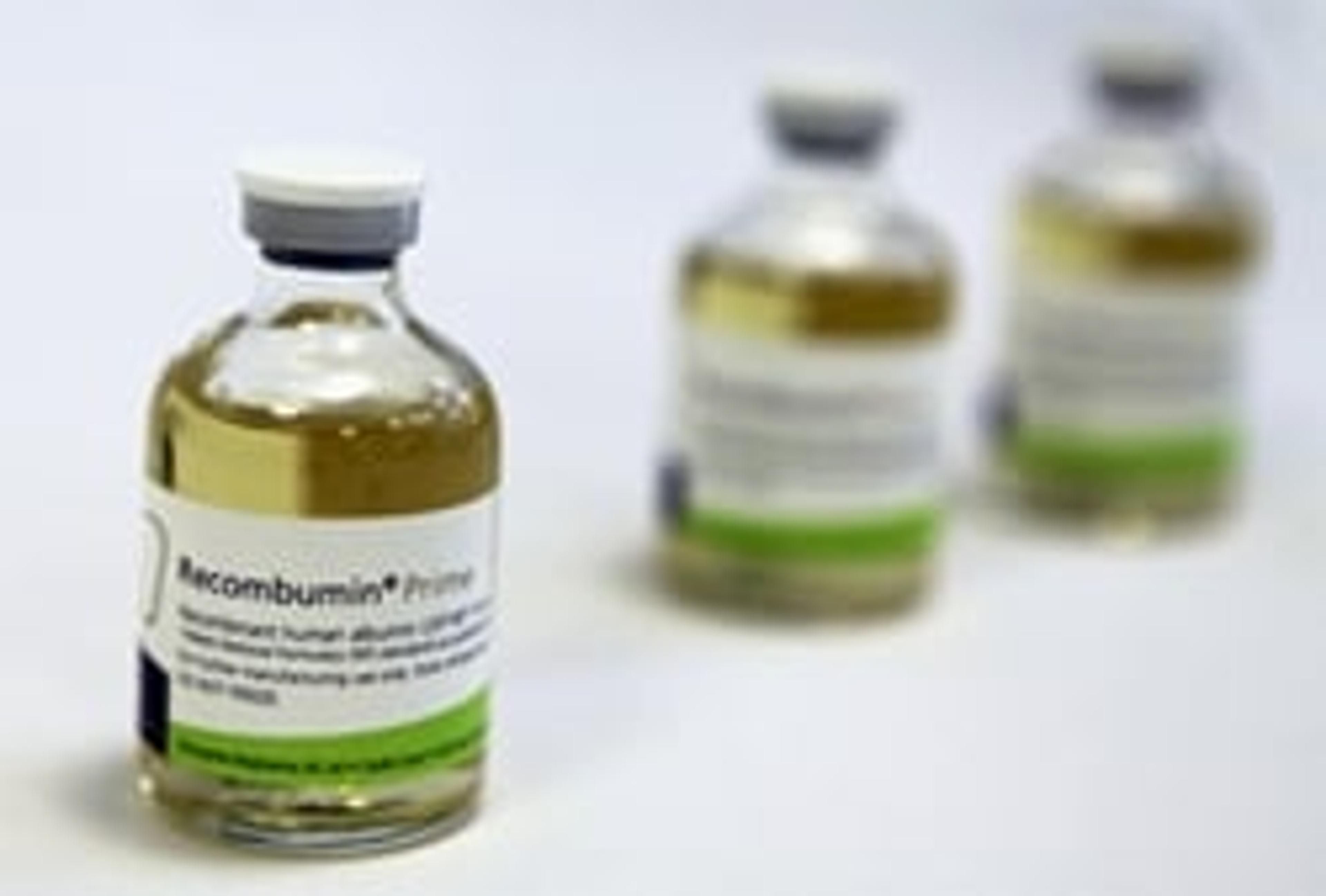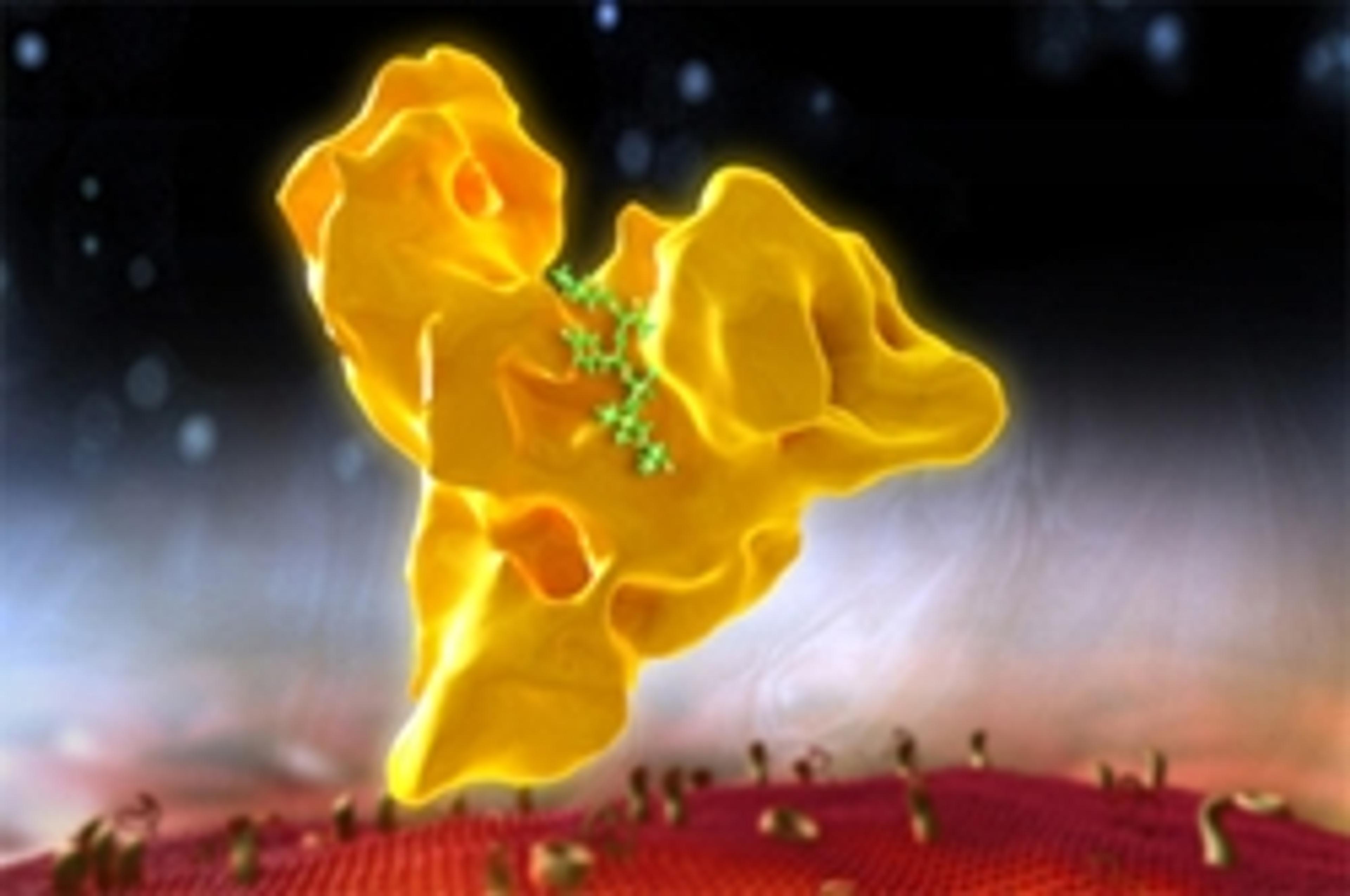Exclusive Interview: Dr Darrell Sleep Talks to SelectScience about Albumin and its Power to Boost Existing Drugs
20 May 2014
SelectScience interviewed Dr Darrell Sleep from Novozymes BioPharma about this revolutionary new albumin based technology and the benefits to the Drug Discovery & Development industry.
Dr Darrell Sleep is a graduate in Biochemistry from the University of Leeds in the UK; he obtained his Ph.D. in Molecular Development from the University of Edinburgh. Dr. Sleep is the author of more than 30 publications and patent families, centred on the development of biopharmaceutical products, technologies and processes. As a Director within Novozymes Biopharma R&D, Dr Sleep leads the Molecular Biology and Fermentation department, a research team engaged in the continuous improvement of efficient yeast systems for the manufacture of recombinant native and bioengineered peptides and proteins. Among others, Dr Sleep’s team has developed processes for the production of recombinant human albumin, albumin fusions, antibody fragments and engineered albumins with improved biopharmaceutical properties. Current research is aimed at improving the stability and extending the circulatory half-life of peptides and proteins through formulation, conjugation and genetic fusion to albumin.
Albumin based technology for drug development and improved drug delivery
SelectScience asked Dr Sleep about the albumin based technology. “The Veltis technology is based on a series of wild-type and engineered albumins, designed to interact in a modified way with the natural endothelial receptor for albumin,” he said.
Dr Sleep continued: ”Human albumin is the most abundant human blood plasma protein. It also has an extraordinarily long circulatory half-life, by which it is meant that albumin survives in the human body for a very long time, almost three weeks. Many of the protein and peptide drugs currently being developed for human therapeutic intervention have a circulatory half-life measured in minutes or hours and as a consequence the drugs have to be administered very frequently; often daily, which is not patient friendly due to the high number of administrations. Albumin’s long circulatory half-life is in part due to its interaction with another protein known as the FcRn receptor, found predominantly on endothelial cells. Novozymes has characterised the interaction of albumin with FcRn and through this knowledge has engineered the albumin to modify the albumin-FcRn. By the use of the Veltis® engineered albumins, the new technology opens up the opportunity to optimise drug dosing regimens to once monthly, once two-weekly or once weekly.”
Dr Sleep told SelectScience about future implications of the technology: ”Veltis® may be applied to some small molecule anti-cancer or rheumatoid arthritis drugs to target them to the site of action and thereby make them more effective.”
”In addition, Novozymes has forged a number of partnerships with chemistry companies to be able to apply Veltis by conjugation to peptides and small molecules. These companies include Almac and ThioLogics.”
Pharmaceutical collaborations for type 2 diabetes
Novozyme has worked for a long time with GlaxoSmithKline and the company is currently working with other businesses to provide technical and regulatory support for their drug development efforts in type 2 diabetes.
Dr Sleep commented: “The first generation Veltis® technology has previously been licensed to GSK and CSL Behring. GSK has developed an albumin fusion to GLP-1 for use in the diabetes field. The GLP-1 albumin fusion is manufactured using the same yeast expression system that Novozymes Biopharma developed to manufacture its internal native sequence product Recombumin® Prime. The GLP-1 albumin fusion, which has the name albiglutide, has been approved for use in Type 2 diabetes, where it will be marketed in Europe under the trade name of Eperzan and in the USA under the trade name of Tanzeum. In another research agreement with EpiVax, EpiVax’s proprietary Tregitope (T regulatory epitopes) immune-modulating therapy for the treatment of Type 1 diabetes, will link to Novozymes’ proven Veltis® half-life extension platform, helping to enhance its pharmacokinetic and pharmacodynamics properties. As a result, it will be possible to modulate half-life of the therapy to offer improved control, enhancing the overall efficacy of treatment."
Albumin drug developments and approval
The recent approval in the US and in Europe for albiglutide has demonstrated that there is a clear regulatory path to the approval of drugs employing the 1st generation Veltis® technology, which makes use of the native sequence albumin to extend the circulatory half-life of the GLP-1 drug genetically fused to the albumin. The progress of CSL’s FIX-albumin fusion also demonstrates that complicated proteins, as opposed to smaller peptides such as GLP-1, can also significantly benefit from the Veltis® technology. The recently announced collaborations with Janssen and EpiVax to evaluate the Veltis® engineered albumins, to further improve and optimise the drug dosing, validates the need in the marketplace for improved drugs with optimised drug profiles.
Dr Sleep told SelectScience about other albumin linked drug products in development: “Some products that our customers are working with include GLP-1, but in addition CSL are using the technology to improve coagulation factors such as FVII. Recently CLS has published clinical data on a Veltis® albumin fusion to a coagulation factor called FIX. The product is called rIX-FP.“
”In addition, Teva has exploited the technology for its version of filigrastim, used to boost white blood cell production in patients undergoing cancer treatment. The innovative immunology company EpiVax is also evaluating Veltis for being able to develop deliverable forms of their tregepitopes for treatment of a variety of immune diseases.“


